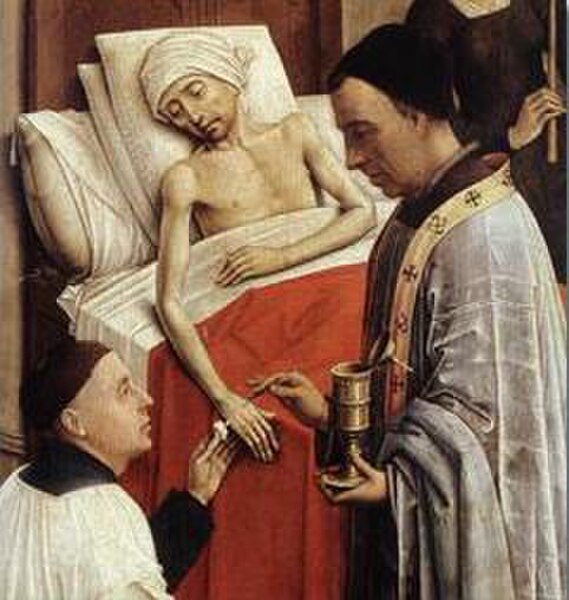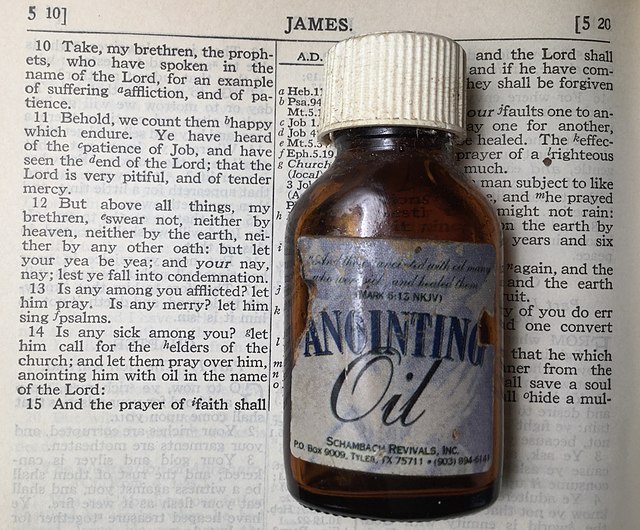Anointing of the Sick in the Catholic Church
In the Catholic Church, the anointing of the sick, also known as Extreme Unction, is a Catholic sacrament that is administered to a Catholic "who, having reached the age of reason, begins to be in danger due to sickness or old age", except in the case of those who "persevere obstinately in manifest grave sin". Proximate danger of death, the occasion for the administration of Viaticum, is not required, but only the onset of a medical condition of serious illness or injury or simply old age: "It is not a sacrament for those only who are at the point of death. Hence, as soon as anyone of the faithful begins to be in danger of death from sickness or old age, the fitting time for him to receive this sacrament has certainly already arrived."
"Extreme Unction", part of The Seven Sacraments (1445–1450) by Rogier van der Weyden.
Anointing of the sick, known also by other names such as unction, is a form of religious anointing or "unction" for the benefit of a sick person. It is practiced by many Christian churches and denominations.
Detail of The Seven Sacraments (1445) by Rogier van der Weyden showing the sacrament of Extreme Unction or Anointing of the Sick
Service of the Sacrament of Holy Unction served on Great and Holy Wednesday.
R. W. Schambach anointing oil



